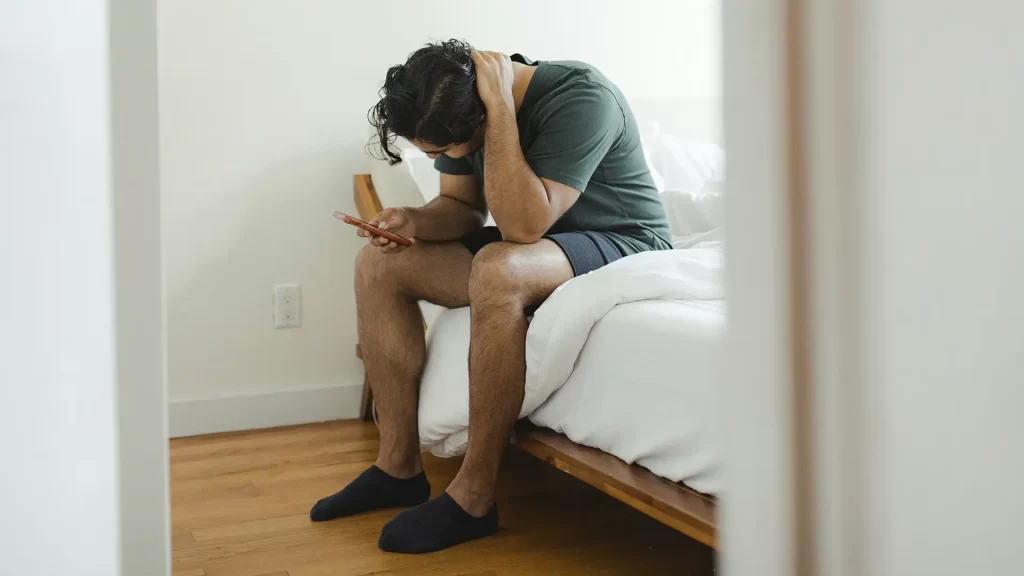Every November 19, the world celebrates International Men’s Day, a date that, although less well known than other observances, has a significant impact in addressing key issues for men’s health and well-being. Since its establishment in 1999, thanks to the initiative of Jerome Teelucksingh, this date has been an opportunity to reflect on the challenges facing men in the 21st century, especially in areas such as mental health, suicide rates and emotional expression.
A Day with Purpose
Professor Jerome Teelucksingh, originally from Trinidad and Tobago, chose this date not only to honor the birth of his father, a role model, but also to open a space to recognize the positive contributions of men in society and address their specific needs. Today, more than 80 countries, including Mexico, commemorate this day with the support of organizations such as UNESCO.
Despite advances in equality and human rights, there are still cultural and social barriers that limit men’s well-being. Such as the challenges of accepting men’s emotional vulnerability.
Men’s Health: An Unfinished Business
Men’s health remains an area requiring urgent attention. According to the World Health Organization (WHO), men tend to live fewer years than women, in part because of their lower willingness to seek preventive medical care. Diseases such as prostate cancer, heart disease and mental health-related problems are more common among men, but are often detected in advanced stages because men do not prioritize their physical well-being.
International Men’s Day seeks to break this cycle by promoting the importance of going to the doctor regularly, getting check-ups and maintaining a healthy lifestyle. It also stresses that taking care of one’s health is not a sign of weakness, but of strength and responsibility.

Reducing Suicide Rates: An Urgent Need
One of the most critical issues addressed by this day is the alarming rate of suicide among men. In many parts of the world, men account for the majority of suicide cases, a phenomenon linked to social pressure to “be strong” and not express their emotions.
Traditional masculinity often pushes men to repress their feelings, which can lead to emotional isolation and, in extreme cases, serious mental health problems. According to the National Institute of Statistics and Geography (INEGI), in Mexico, suicide is the second leading cause of death in men between the ages of 15 and 29.
Talking about mental health is essential, and International Men’s Day serves as a platform to normalize these conversations. It’s a reminder that it’s okay to seek help, that expressing vulnerability doesn’t diminish anyone, and that taking care of emotional health is just as important as taking care of physical health.
Combating Emotional Stigmas
Historically, men have been conditioned to believe that showing emotions is a sign of weakness. Phrases like “men don’t cry” or “you have to be strong” have shaped generations, reinforcing the idea that vulnerability is something to be hidden. However, this perception is not only harmful to men, but also to those around them.
Combating these stigmas does not mean eliminating the defining characteristics of each person, but rather broadening the spectrum of what it means to be a man. Allowing men to express sadness, fear or worry not only enhances their personal well-being, but also fosters more authentic and meaningful relationships with others.
International Men’s Day invites us to redefine what it means to be emotionally healthy. Strength lies not in hiding problems, but in confronting them with the right support.
An Inclusive and Necessary Celebration
Far from seeking competition with other commemorative dates, International Men’s Day is an opportunity to create balance in the conversation about gender and well-being. It is a day to recognize men who inspire their communities, to reflect on how we can best support them, and to advocate for a world where they can be themselves without fear of judgment.
Men’s health, both physical and emotional, is a fundamental pillar to the well-being of any society. Fostering an environment where men can seek help, express their feelings and take care of themselves should be a collective commitment.
On this International Men’s Day, let us remember that we all have a role to play in building a more caring and supportive society. Let’s talk more, judge less and work together so that every man, regardless of age, can live a full and healthy life.








































Leave a Reply